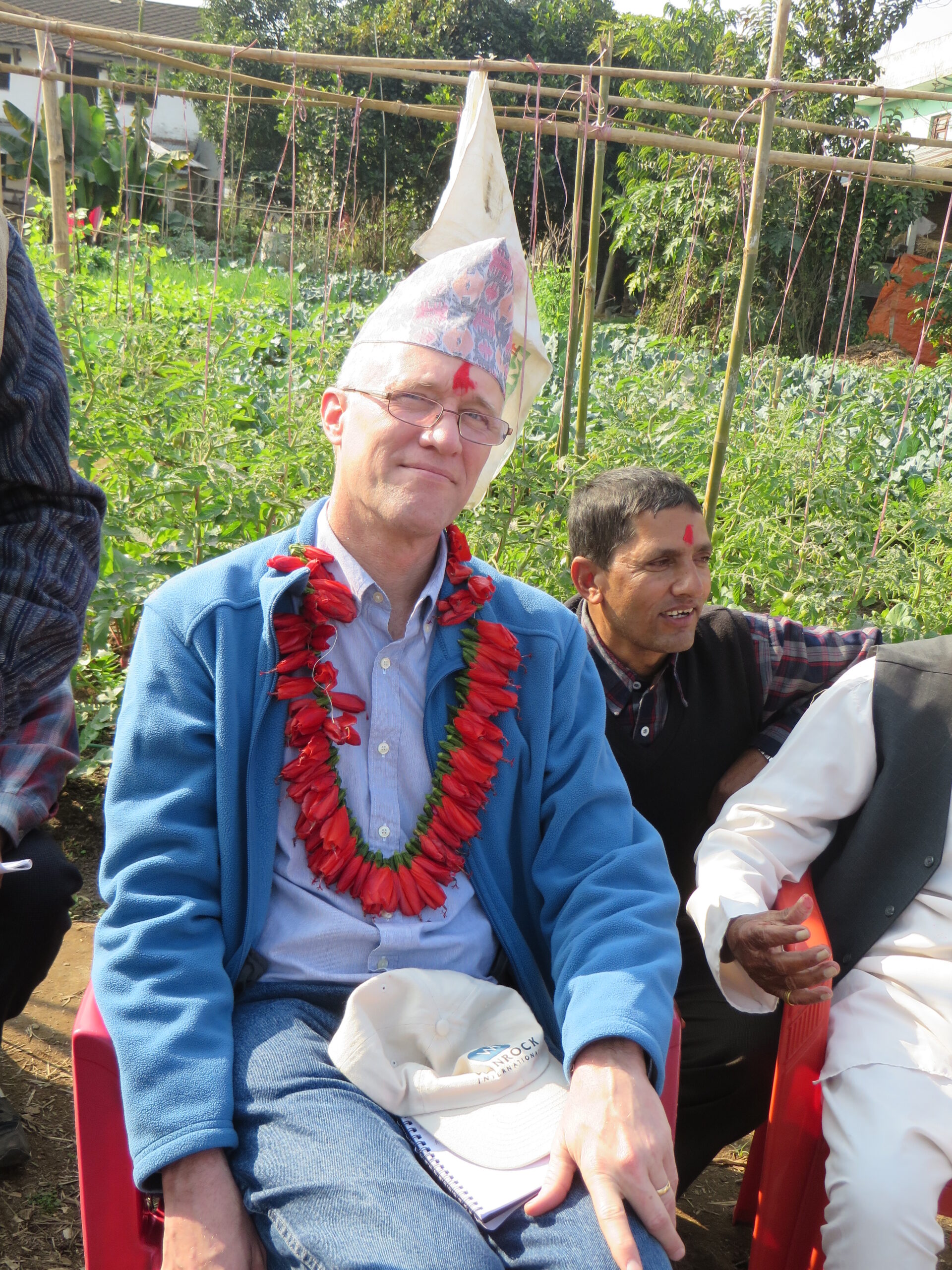
Volunteer Post
Integrated Pest Management in Nepal
Today’s blog post comes from Dr. Thomas Shanower, reflecting on his recent Farmer-to-Farmer volunteer assignment in Nepal:
“My assignment in Nepal was to work with two farmer groups on improved pest management. Specifically, it was to conduct training for trainers to utilize the Farmer Field School approach for Integrated Pest Management (IPM). The goal of IPM is to use a combination of pest management tactics to improve pest control and minimize pesticide use. Farmer Field Schools are a specific methodology where groups of farmers organize and evaluate various technologies, in this case, different pest management tactics. The farmers become the experts as they test and compare pest control options in their own fields.
The first group was the IPM Farmers Association in Chitwan District. At the end of the second day we had a field visit to a nearby community garden. A wide variety of vegetable crops were being produced, with almost nosynthetic pesticides, by a group of 20 families. Most of the crops were in excellent condition, though a couple of problems were observed.
The visit was important for several reasons. It provided the training participants practical exposure to pest, disease and weed problems in vegetable crop production. We focused on evaluating and diagnosing pest problems (see photo, above) and discussing control options. This community effort is a model example of how commercial quality vegetables can be produced while reducing the amount of pesticides utilized. Reducing the over-reliance on pesticides reduces health risks to farmers, rural communities and consumers. It can also improve net returns to farmers by reducing input costs.
 The visit was also important because it was an opportunity to recognize the accomplishments of the community in developing this garden. A ceremony was held at the end of our visit to honor the contributions of Basudev Sapkota, one of the leaders of the agency hosting the IPM training. As an international visitor I was considered a guest of honor and presented with a traditional Nepali cap.
The visit was also important because it was an opportunity to recognize the accomplishments of the community in developing this garden. A ceremony was held at the end of our visit to honor the contributions of Basudev Sapkota, one of the leaders of the agency hosting the IPM training. As an international visitor I was considered a guest of honor and presented with a traditional Nepali cap.
Agriculture is critically important to Nepal, and its future. Approximately 70% of Nepal is depend on agriculture for their livelihood. As the population increases and as land is lost to urban development, more food will need to be produced from less land. Giving farmers the tools to effectively manage pests will help achieve this goal. It was exciting to see a successful example of this today.”
–Tom Shanower
